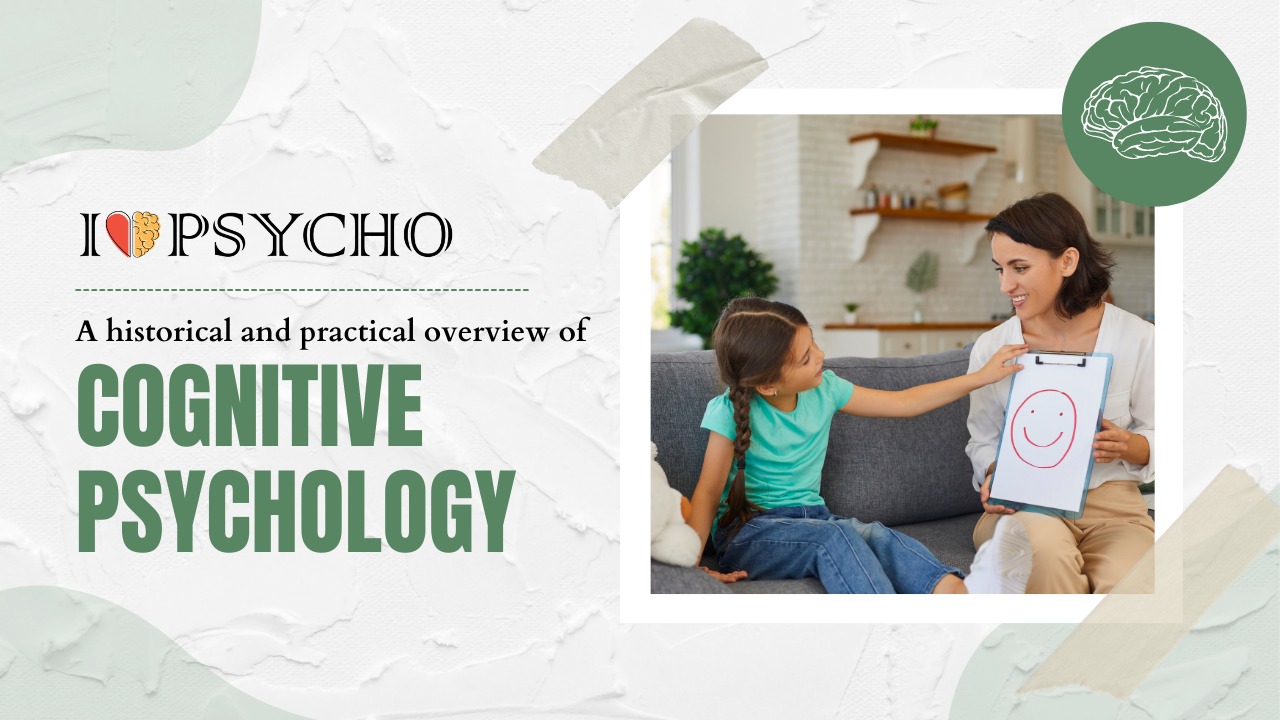Cognitive Psychology has derived its name from the Latin language. The term “cognition” comes from the Latin cognoscere, which means “to know” or “to come to know.” As a result, cognition encompasses the activities and processes involved in knowledge acquisition, storage, retrieval, and processing.
In other words, it could include the processes that assist us in perceiving, attending, remembering, thinking, categorizing, reasoning, and making decisions.
According to Sternberg (1999), cognitive psychology is “the study of how people perceive, learn, recall, and contemplate about information.”
Solso defined it as the study of processes underlying mental events in 2005.
Thus, cognitive psychology can be defined broadly as the branch of psychology concerned with how people obtain, store, change, apply, and communicate language.
The various cognitive processes that make up this branch are studied by cognitive psychologists.
These processes include attention, which is the process of focusing on a stimulus; perception, which is the process of interpreting sensory information; pattern recognition, which is the process of classifying stimuli into known categories; and memory, which is the process of storing information for later retrieval, among others.
As a result, cognitive psychologists’ work encompasses a wide range of topics, as shown below:
- Attention
- Perception
- Memory
- Language
- Problem Solving
- Decision Making, and many more.
Cognitive Psychology’s History
The history of experimental psychology is intimately intertwined with the history of cognitive psychology, which can be traced back much further. This can be traced back to the empiricist, rationalist, and structuralist schools of thought, which included philosophical works by Plato and Aristotle on the philosophy of mind, as well as later works by Wundt and Titchener on introspection.
For a time, however, the behaviorist school of thought dominated all others, and the emphasis was shifted away from thought and toward behavior. Between the 1950s and the 1970s, the tide began to turn against behavioral psychology, focusing instead on themes like attention, memory, and problem-solving.

The academic discipline of “Cognitive Psychology” began during the cognitive revolution in the mid-to-late 1900s, but the phrase “cognitive psychology” did not appear until 1967. The Cognitive Revolution was sparked by a number of factors, including dissatisfaction with behaviorism, World War II, and significant technological developments in other sectors, such as computer sciences.
Psychology refocused on mental processes, and objective, quantifiable methods for measuring them emerged. In order to gain a better understanding of the field of cognitive psychology, a number of different disciplines have begun to collaborate in recent years, including psychology, artificial intelligence, linguistics, philosophy, anthropology, and neuroscience.
Application of Cognitive Psychology
The branch of psychology that studies higher-level mental processes is known as cognitive psychology. The following are some of the areas where this branch finds application in the real world:
- Errors of Humans
- Behavior that drives
- Designing a product
- Observant behavior
- Recognition of objects and faces
- Interaction between humans and machines
Cognitive psychology is a vital field because it investigates everything that goes into making a person who they are, based on what they know, think, and feel. 
Understanding cognitive psychology can assist people in making better decisions and recognizing how great people achieve their goals. For example, if a student is having trouble concentrating in class and notices that when the chatty people in front of them leave, they take better notes, it is beneficial for them to make a cognitive decision to sit somewhere else.
This example demonstrates how understanding cognitive psychology can help a person better understand himself or herself and thus make better personal decisions. The intrinsic limitations of introspection and behaviorism, working memory, the role of the amygdala, and the structure of a neuron and synapse are all important concepts to grasp in cognitive psychology.
Further Reading:









